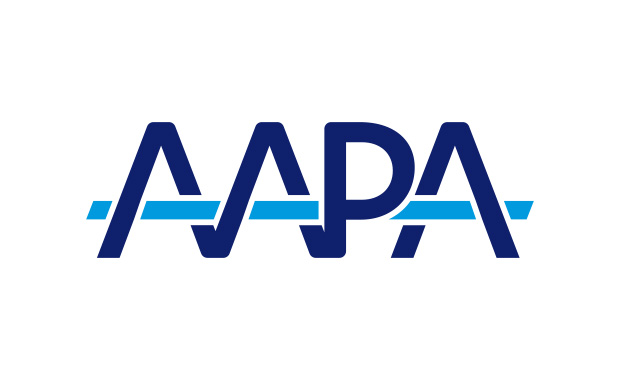What Every PA Should Know About Mental Illness and Suicidal Ideation
Do PAs Address Suicide Among Themselves?
September 16, 2022
By AAPA Joint Task Force on Burnout
In recognition of National Suicide Prevention Month, we’d like to remind you that PAs are not immune to mental health issues nor suicidal ideations, attempts, or completions. Although there are barriers to seeking treatment, there are resources available to you.
We see you.
We see every one of our colleagues who has contemplated suicide over the last year and we mourn those we have lost.
We see PA students who no longer use the analogies about PA school and drinking from a fire hose but refer to the experience as more akin to waterboarding.
We see every healthcare worker struggling with depression, anxiety, or other mental health concerns.
We see you, and every one of our PA colleagues, and want you to know these 5 important things:
- One-third to one-half of PAs have symptoms of burnout. Suicidal ideation is more commonly reported by physicians compared to workers in other fields (7.1% vs 4.3%; p <0.001).1 In the same report, burnout and recent medical errors were associated suicidal ideation. Although data is limited, similar risks are likely true for PAs.2 A recent study has found that depression influences feelings of professional satisfaction and self-reported medical errors. They are mediated by emotional exhaustion and interpersonal disengagement. Why does this matter? Prior to the COVID-19 pandemic, 6.1% of PAs met the criteria for clinical depression and 12.6% for moderate to severe anxiety. One-third to one-half had symptoms of burnout, including 45.9% who expressed work exhaustion and 30.2% interpersonal disengagement.3
- PA students are at risk for depression. PA students are at risk for major depression and report thoughts of suicidal ideation. The risk of mental health problems increases during the didactic year.4
- A new law supports the mental health needs of healthcare workers. Barriers to seeking care for mental illness for healthcare workers include discrimination in medical licensing, hospital privileges, and professional advancement.5 The Dr. Lorna Breen Health Care Provider Protection Act, (HR 1667), supported by AAPA, has been enacted to reduce and prevent suicide, burnout, and mental and behavioral health conditions among health care professionals. To learn more, visit https://drlornabreen.org.
- Be attentive to signs of depression, suicidality, and burnout. We can support each other by being attentive to the signs of depression, suicidality, and burnout in ourselves, our clinical colleagues, and the students we educate. Resources from AAPA and other professional organizations to learn more and gain the skills to help each other are available on PA Burnout.
- Seek care for mental health and associated conditions. It is vital for PAs to establish a regular source of healthcare and seek care for mental health and associated conditions. However, actions of individuals alone are not enough. PA leaders must advocate at their places of work to remove barriers to seeking care, take active steps to reduce the stigma associated with mental illness, and work to improve the organizational climate to improve provider well-being.
If you need to talk to someone, please reach out to one of the following resources:
Magellan Health’s Helpline for Healthcare Workers | 1-800-327-7451
Staffed by certified licensed mental health clinicians, this 24-hour crisis line is for first responders and healthcare workers on the front lines of COVID-19.
National Suicide Prevention Lifeline | 1-800-273-8255 | 1-800-799-4889 (Deaf and hard of hearing)
Provides free and confidential support for people in distress as well as best practices for professionals.
SAMHSA Disaster Distress Helpline | 1-800-985-5990
Provides 24/7, 365-day-a-year crisis counseling and support to people experiencing emotional distress related to natural or human-caused disasters.
The Emotional PPE Project
Provides free counseling from volunteer licensed mental health practitioners in their directory to any worker in a healthcare related field that is impacted by COVID-19.
Authors: Eric Tetzlaff, PA-C, DFAAPA and Barbara Morrison, PA-C with support from Bettie Coplan, PhD, PA-C and Noël Smith, senior director of PA and industry research at analysis at AAPA. Contact Noël Smith at [email protected] for more information.
Read More
Blueprint for Addressing Physician Assistant Well-being and Burnout
Getting Ahead of Burnout: Experts Share Tips for Provider Well-being
Feeling Unfulfilled? You Might Need a New Job
PA Program Prioritizes Student Mental Health
PA School Success: Embrace Opportunities and Challenges, Relieve Stress
Depression, burnout, and professional outcomes among PAs
More Resources
PA Burnout
National Academy of Medicine Action Collaboration on Clinician Well-Being and Resilience
References
1. Shanafelt TD, Dyrbye LN, West CP, et al: Suicidal Ideation and Attitudes Regarding Help Seeking in US Physicians Relative to the US Working Population. Mayo Clinic Proceedings 96:2067-2080, 2021
- Dyrbye LN, Johnson PO, Johnson LM, et al: Efficacy of the Well-Being Index to identify distress and stratify well-being in nurse practitioners and physician assistants. Journal of the American Association of Nurse Practitioners 31:403-412, 2019
- Blackstone SR, Johnson AK, Smith NE, McCall TC, Simmons WR, Skelly AW. Depression, burnout, and professional outcomes among PAs. JAAPA. 2021;34(9):35-41. doi:10.1097/01.JAA.0000769676.27946.56
- Neary S, Ruggeri M, Roman C: Assessing Trends in Physician Assistant Student Depression Risk, Suicidal Ideation, and Mental Health Help-Seeking Behavior. J Physician Assist Educ, 2021
- Center C, Davis M, Detre T, et al: Confronting Depression and Suicide in PhysiciansA Consensus Statement. JAMA 289:3161-3166, 2003
This article was originally published September 2021.
Thank you for reading AAPA’s News Central
You have 2 articles left this month. Create a free account to read more stories, or become a member for more access to exclusive benefits! Already have an account? Log in.



